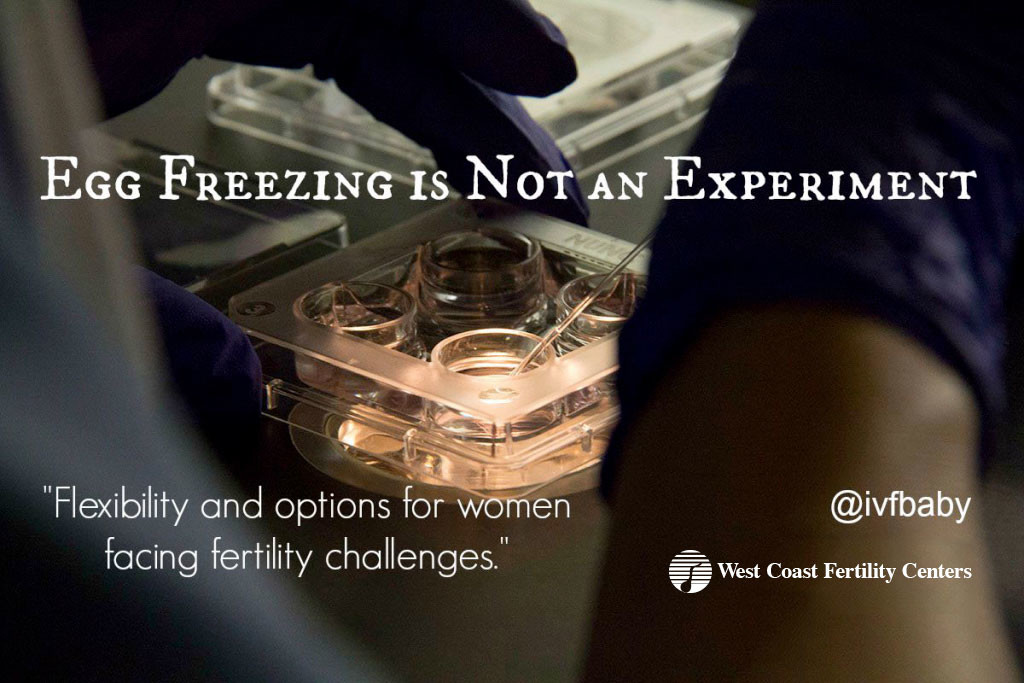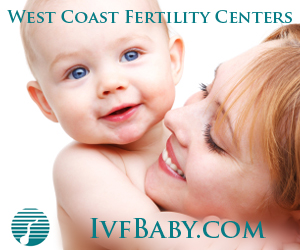
The world of assisted reproductive technology (ART) has seen rapid growth over the past decade. Perhaps one of the most exciting advances was the advent of egg freezing. There are many pros for women wishing to freeze their eggs, which up until recently, was labeled as experimental. However, in 2012, the American Society of Reproductive Medicine (ASRM) removed the experimental label from egg freezing.
Egg freezing, also known as oocyte cryopreservation, is a process in which a woman’s ovaries are hyper-stimulated with the assistance of hormone injections to produce multiple eggs. The eggs are then extracted and frozen through a process called vitrification (the most common freezing method used today). The eggs then remain frozen until the woman decides she is ready to get pregnant, at which time the eggs can be thawed, fertilized, and implanted via an in-vitro fertilization (IVF) procedure.
Egg freezing technology is a relatively new technology. The first birth from a frozen egg occurred in 1986. While that was nearly three decades ago, it has taken that long to perfect the science. In 2012, the ASRM reviewed data from four randomized and controlled studies. These studies looked at fertilization, embryo implantation, and pregnancy rates of fresh eggs as compared to eggs frozen through vitrification. The data from these studies showed similar fertilization, implantation, and pregnancy rates. The data also showed there was no higher risk of birth defects or developmental disorders with fresh versus frozen eggs.
Egg Freezing Provides Flexibility
So what does this mean for women? It means, if you are a good candidate for freezing your eggs, you now have a little more flexibility. First, prior technology would harvest a woman’s eggs, fertilize them immediately and then freeze the embryos. If not all the embryos were used, couples were faced with the moral dilemma of discarding or donating them.
Additionally, this technology required women to know who the sperm donor would be at the time of harvest. In many cases, the woman may not know who she wants to fertilize the eggs at the time of harvest.
Reproductive Endocrinologists will always recommend the natural method first. However, there are some instances when natural conception is not an option. Depending on factors such as the health of the woman, her age, and social factors – egg freezing may be the best option for a woman to conceive a biological child.
Who Egg Freezing is For
Egg freezing was originally developed to help give women diagnosed with cancer the option to preserve their fertility. Egg freezing is also useful for women who are diagnosed with autoimmune disorders, such as premature ovarian failure, which may deplete a woman’s fertility at a faster rate.
Egg freezing is also utilized by women who wish to delay motherhood past their prime fertile years (twenties and early thirties). This option is rapidly gaining popularity, especially with major companies such as Facebook and Citigroup, who are now providing insurance coverage for their female employees to utilize such services.
Egg freezing has proven to be a viable option for good candidates. Over the past thirty years, scientists and doctors have perfected the cryopreservation process, providing flexibility and options for women facing fertility challenges. While natural conception through intercourse is always the best choice; When that does not work or it’s not the right time, egg freezing is an excellent option to explore.





